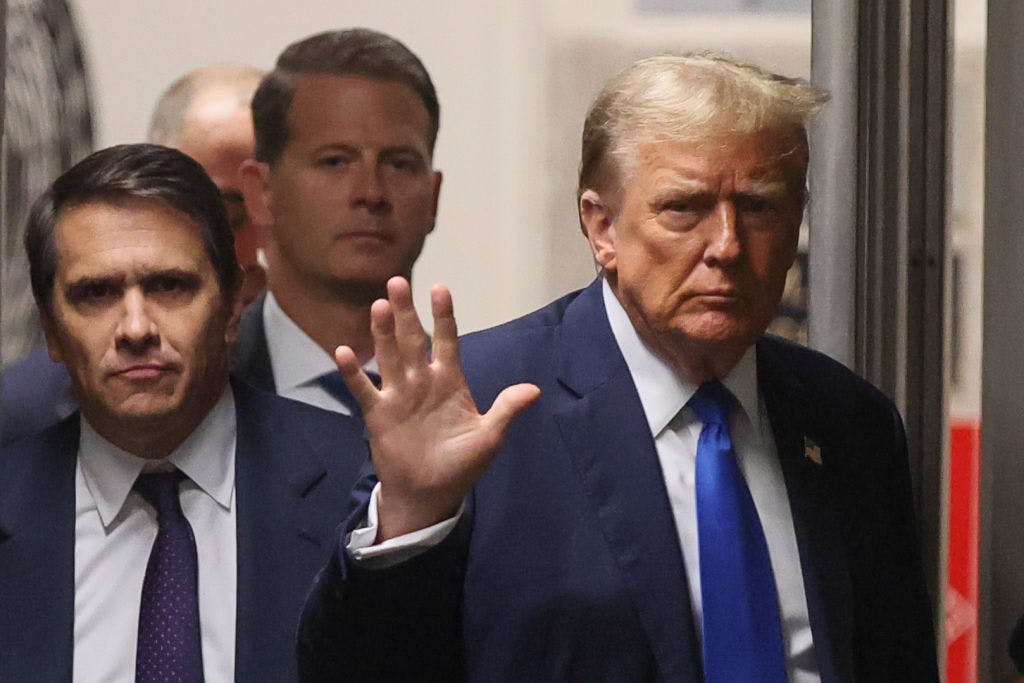A New and Potentially Decisive Issue Between President Trump and Jack Smith Is Moving To the Fore — Prejudice
A clash is brewing between the special counsel and the 45th president over who holds the constitutional high ground.

A new and potentially decisive issue is moving to the fore in the trials of President Trump. It has to do with the legal concept of prejudice. The question is who would be meaningfully prejudiced — legal lingo for harmed — by a delay of the trials. Is it Mr. Trump or Special Counsel Jack Smith?
Mr. Trump’s accusation, sent to Judge Cannon in a Thursday morning filing, that Mr. Smith “fails to identify any prejudice to the government if the Court grants a brief extension” on a filing deadline, is paired with the allegation that the prosecutor “does not earnestly acknowledge” the former president’s “right to counsel of his choice.”
That language suggests that the 45th president plans to make a South Florida stand on the hallowed ground of the Sixth Amendment, which ordains in relevant part that “in all criminal prosecutions, the accused shall enjoy the right to a speedy and public trial, by an impartial jury” and “to have the Assistance of Counsel for his defense.”
At issue is a May 9 deadline in the Mar-a-Lago case, the most important deadline yet in the lead up to trial. Judge Cannon has set that date for Mr. Trump to disclose which documents he intends to use in his defense. Mr. Smith accuses him of 32 violations of the Espionage Act and other crimes of obstruction.
Mr. Smith’s position is that Mr. Trump’s Sixth Amendment right to “have the Assistance of Counsel for his defense” has not been injured because Mr. Trump has had “ample notice that these deadlines would be scheduled and have already had months to complete the work.” The right, though, is granted to the “accused,” not the government, meaning Mr. Smith has a steeper hill to climb.
Mr. Trump is also on trial at Manhattan, where he faces charges brought by District Attorney Alvin Bragg relating to hush money payments and allegedly fraudulent business documents. The former president contends that his federal trial should halt during the pendency of this state one. Neither he nor his lawyers, he argues, can be in two places at once.
The brief to Judge Cannon adds: “President Trump and his counsel cannot prepare — or even discuss — the required filings” outside of a SCIF. The difficulty with two of Mr. Trump’s lawyers — Todd Blanche and Emil Bove — repairing to a secure facility is that they are spending most days at a courthouse at New York City. Mr. Smith has little sympathy because Mr. Trump, he writes, “elected to engage” counsel to work doubletime.
Mr. Trump’s attorneys plant their client’s flag on the argument that the special counsel “makes no effort to actually identify how the government would be prejudiced by an extension of time to allow President Trump and his counsel the right to defend him in New York and before this Court,” in South Florida. The right to a “speedy and public trial,” like assistance of counsel, belongs to the accused and not the government.
Mr. Smith has argued that delays in his trials of Mr. Trump amount to prejudice. The prosecutor in February wrote to the Supreme Court that “delay in the resolution of these charges threatens to frustrate the public interest in a speedy and fair verdict — a compelling interest in every criminal case and one that has unique national importance here.” The special counsel contrasted that with Mr. Trump’s “personal interest” in delay.
In his request to Judge Cannon, though, Mr. Trump argues that in any other case the “government would not seriously contend that a criminal defendant’s Sixth Amendment right is not prejudiced” when the “defendant and his counsel cannot access or discuss the materials necessary” to meet a court-imposed deadline.
Mr. Trump’s lawyers write, in what appears likely to be a recurring refrain, that “any and all prejudice thus inheres to President Trump, not the government.”

